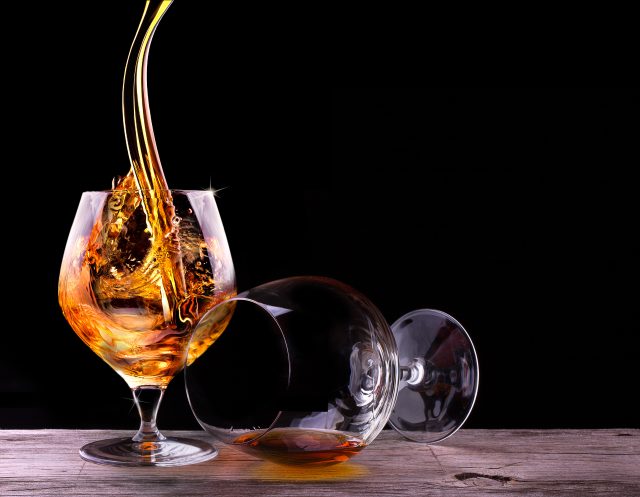Maison Martell to launch new Cognac grape varieties in 2028
As the impact of climate change continues to take effect, historic Cognac producer Maison Martell has taken mitigation into its own hands, cultivating grape varieties not yet permitted by the AOC to safeguard its future.

“Cognac can only be produced in Cognac.” This seemingly self-evident phrase, spoken by cellar master Christophe Valtaud, highlights the true threat that climate change imposes. Cognac as a region is not boundary-less, and without proper care, its grapes, and subsequent eaux de vie, risk being lost to rising temperatures and disease.
Valtaud compares Cognac’s sense of place to that of Scotch whisky; though Scotch is also inherently defined by its place of origin (aka Scotland), the cereals used to produce the spirit can be bought “eveywhere”, he says. In contrast, “we can just buy the grapes from this place”.
All this is to say that when it comes to Cognac, future proofing both the land and grapes is essential for survival. And producers must look well into the future. “When you know that we need 40 years to prepare the eaux de vie, it’s a long long time, and we need time to prepare those kinds of things,” Valtaud says.
as a form of preparation, Maison Martell, steeped in more than 300 years of history, is working with new varieties. “We have already created new varieties that will be more adapted to climate change. We are also targeting varieties that are more resistant to disease because it’s key for us to prepare for the future,” he explains.
Martell initiated a research programme for the creation of new varieties in 2016, alongside the National Institute for Agriculture, Food and Environment, the Conservatoire du Vignoble Charentais, the Institut Francais de la Vigne et du Vin and the Bureau National Interprofessionnel de Cognac, to identify vines which are naturally resistant to disease and require less treatment.
Partner Content
“When you are made with wine, each vintage is so different because the weather can impact you a lot,” Valtaud says, explaining that many of the new varieties Martell is testing “come from the mediterranean area, so the European varieties are more adapted to the dryness.”
Maison Martell is the first private company to invest in a project on this scale. Valtaud says that white wine varieties “from the South of France and the South of Europe” are being explored in the trials.
Of the initial 280 varieties planted, 130 were harvested in 2022, but only 50 were vinified and distilled in micro-alembic stills. In the latest stage of research, 20 new varieties were planted at the end of June 2023.
Martell hopes to launch the selected varieties in 2028, but research like this does pose some risk. “We pay to cultivate these new varieties, but they [the BNIC] will have to validate them,” says Valtaud.
The Pernod Ricard-owned Cognac house hopes that once approved, the grape varieties can be shared with the entire Cognac region. Valtaud says: “This is something key for Pernod Ricard. It’s not only for us, it’s for all of the Cognac area.”
Related news
Strong peak trading to boost Naked Wines' year profitability




